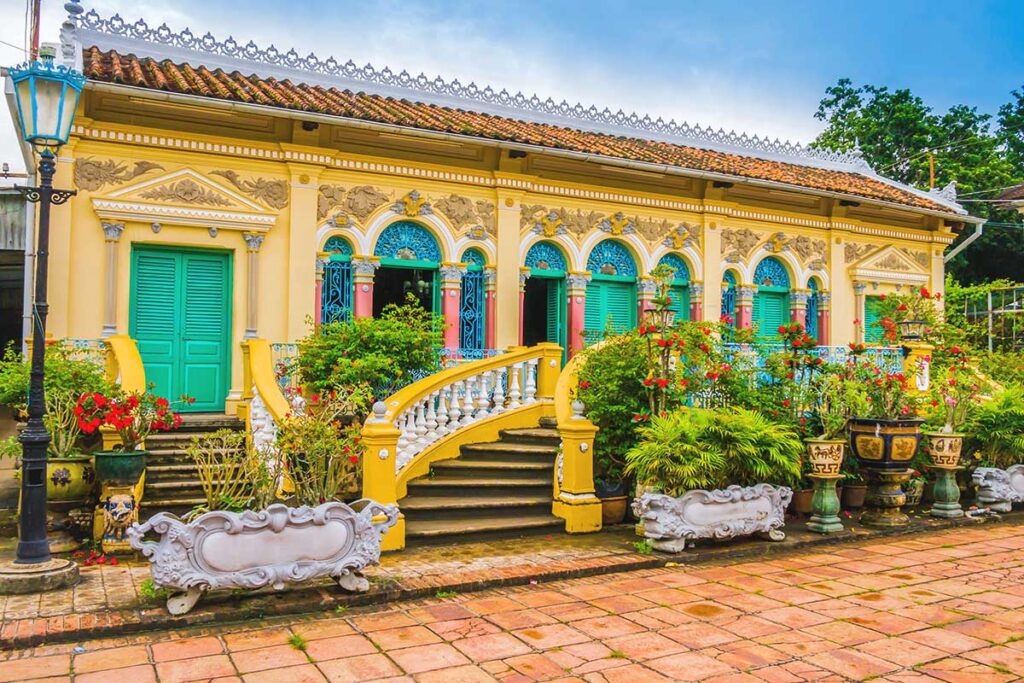What is Binh Thuy Ancient House?
Binh Thuy Ancient House is a late 19th-century French-style villa built by the Duong family, designed with European influence but arranged around Vietnamese traditions like ancestor worship. Recognized as a national heritage site, it stands out in Can Tho for its colonial architecture, antique interiors, and a lush orchid-filled garden.
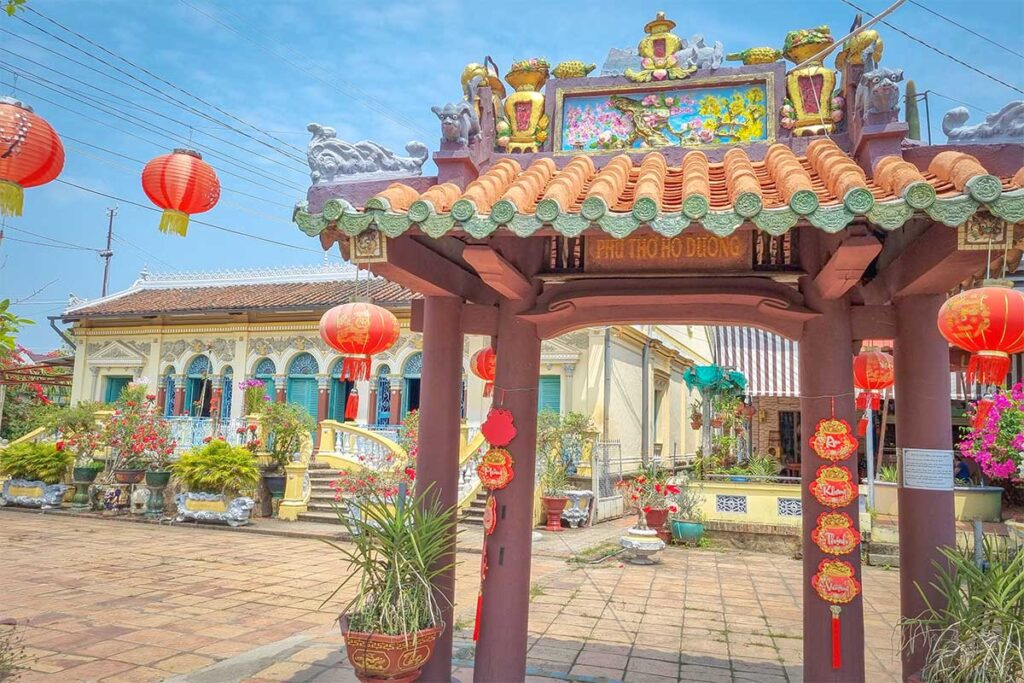
The house is still managed by descendants of the original family and has also gained attention as a filming location, appearing in The Lover (1992) and Vietnamese dramas such as Nguoi Dep Tay Do. This cinematic connection, along with its elegant staircases and balconies, has made it a popular backdrop for photography, especially wedding shoots.
While not the largest or most elaborate attraction in the Mekong Delta, it offers a rare chance to step into a well-preserved heritage home and experience a different side of the region beyond markets and waterways.
A brief history
Binh Thuy Ancient House was first built in 1870 by the wealthy Duong family and later expanded in the early 1900s as the family prospered. Despite its age, the house remains privately owned and cared for by their descendants, making it one of the few heritage homes in Vietnam still lived in by the original family line.
Its design reflects a blend of French colonial aesthetics and Vietnamese cultural traditions—features like the central ancestor altar, feng shui–aligned layout, and even a layer of salt beneath the foundation to keep the house cool and dry.
Over time, it also became known as the “Binh Thuy Orchid Garden,” thanks to a family member’s passion for collecting rare orchids. In 2009, the house was officially recognized as a national architectural relic, securing its place as one of the most notable historic residences in the Mekong Delta.
4. Highlights of visiting Binh Thuy Ancient House
1. Architecture & Design
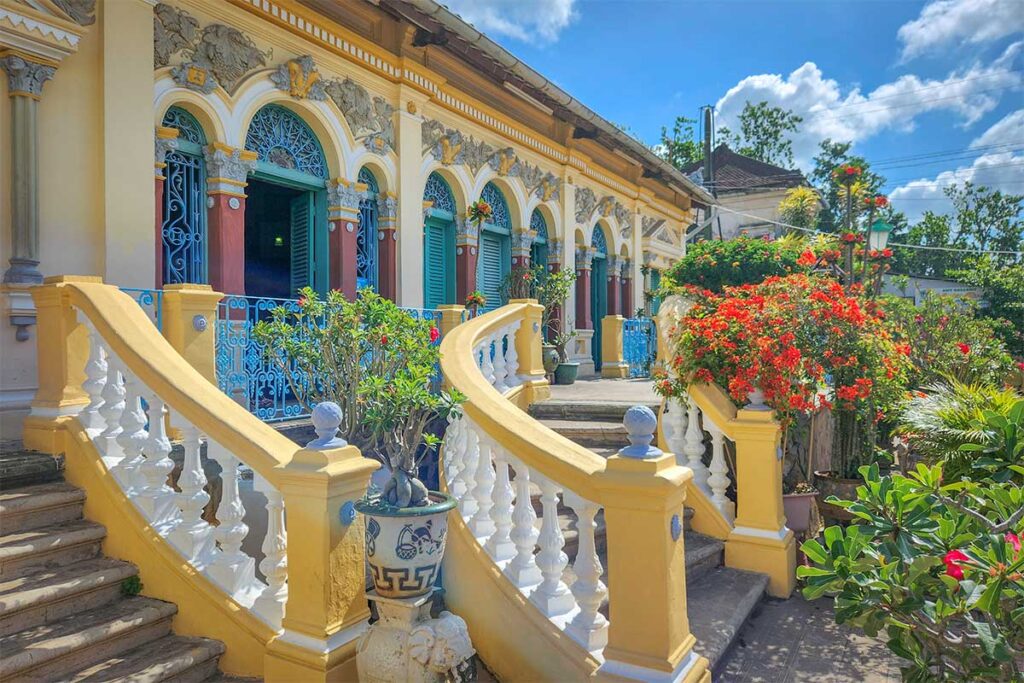
The house’s exterior reflects classic French villa style, with bow-shaped staircases leading to the entrance, decorative arches, and tall windows that provide natural ventilation. Built one meter above ground with a salt foundation to prevent humidity and termites, it shows both European aesthetics and clever local adaptation. The layout follows a symmetrical design with five compartments and two wings, giving it a balanced and elegant appearance.
2. Interior & Antiques
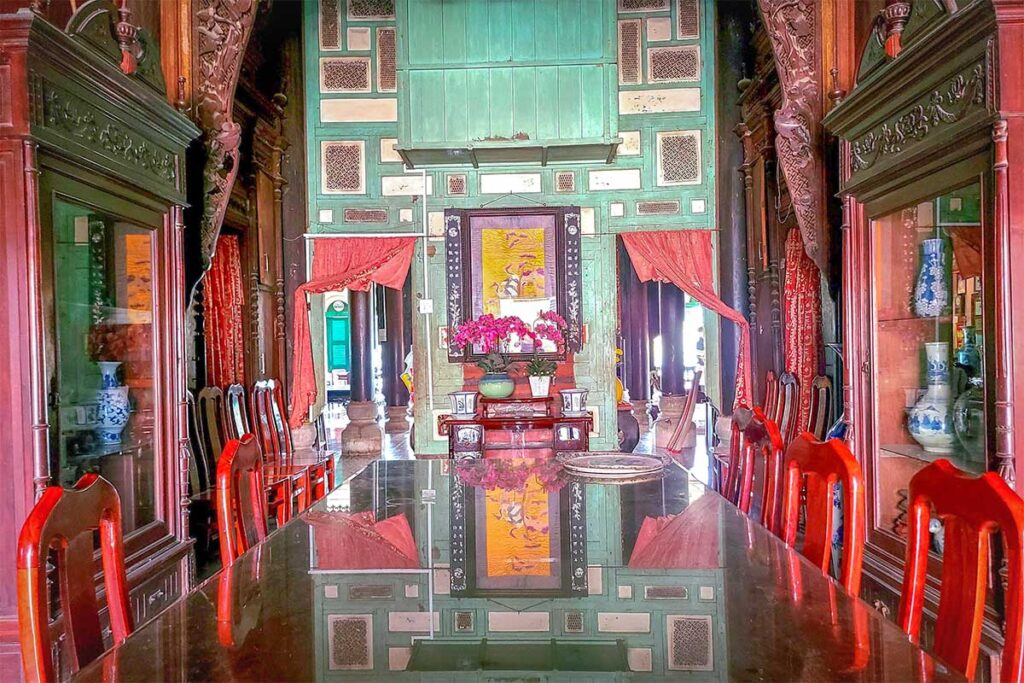
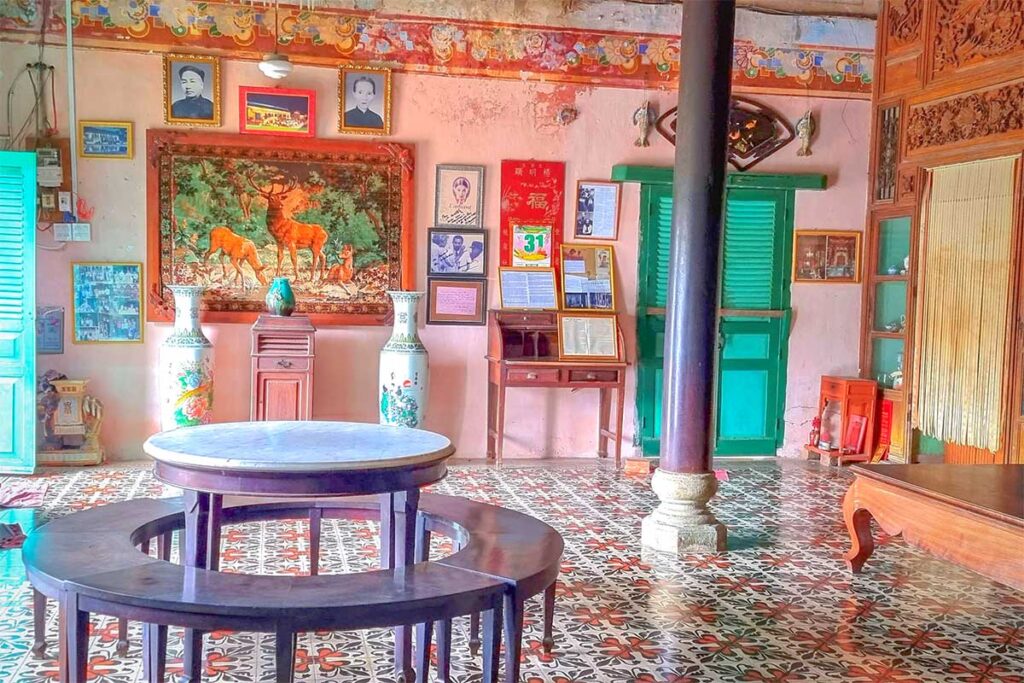
Inside, the mix of cultures becomes even clearer. The tiled floors were imported from France, while the wooden furniture is heavily carved in traditional Vietnamese style. At the center of the house stands the ancestor altar, the most important feature in line with Vietnamese custom.
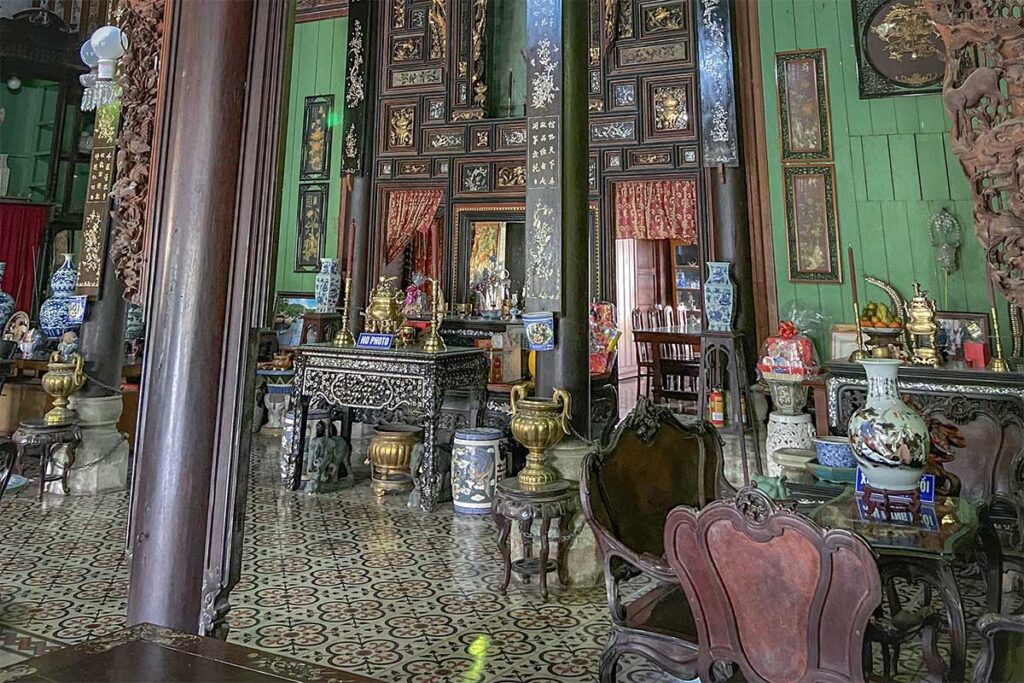
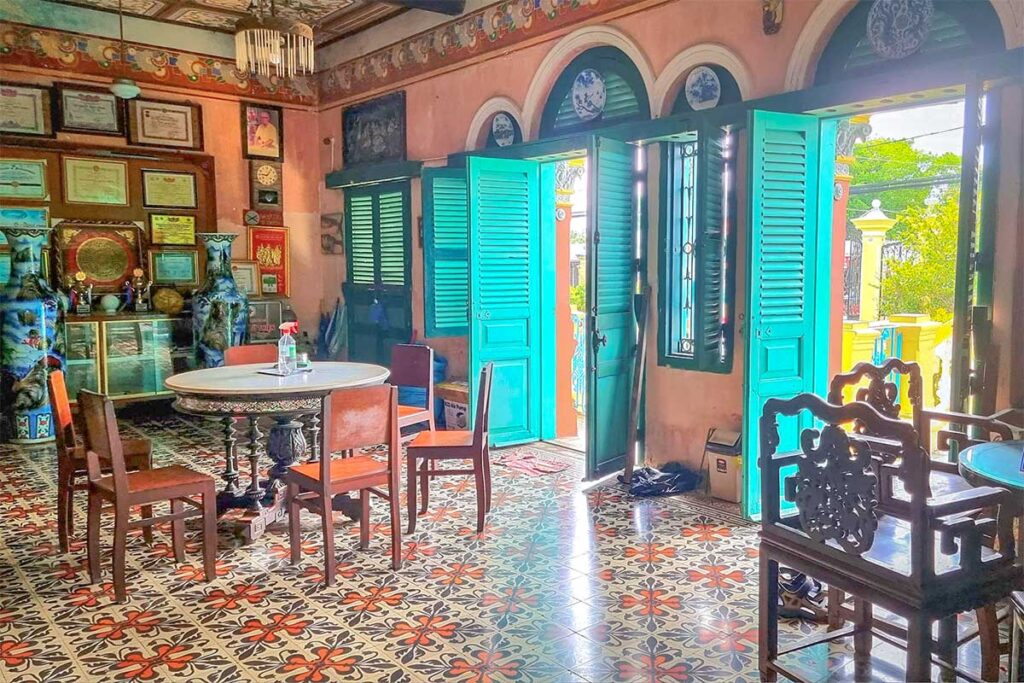
Scattered around are antiques collected over generations, from marble tables and Louis XV–style furniture to 18th–19th century chandeliers, ceramics, and teacups — a small but telling glimpse of the family’s wealth and cultural ties at the time.
3. Gardens & Orchids
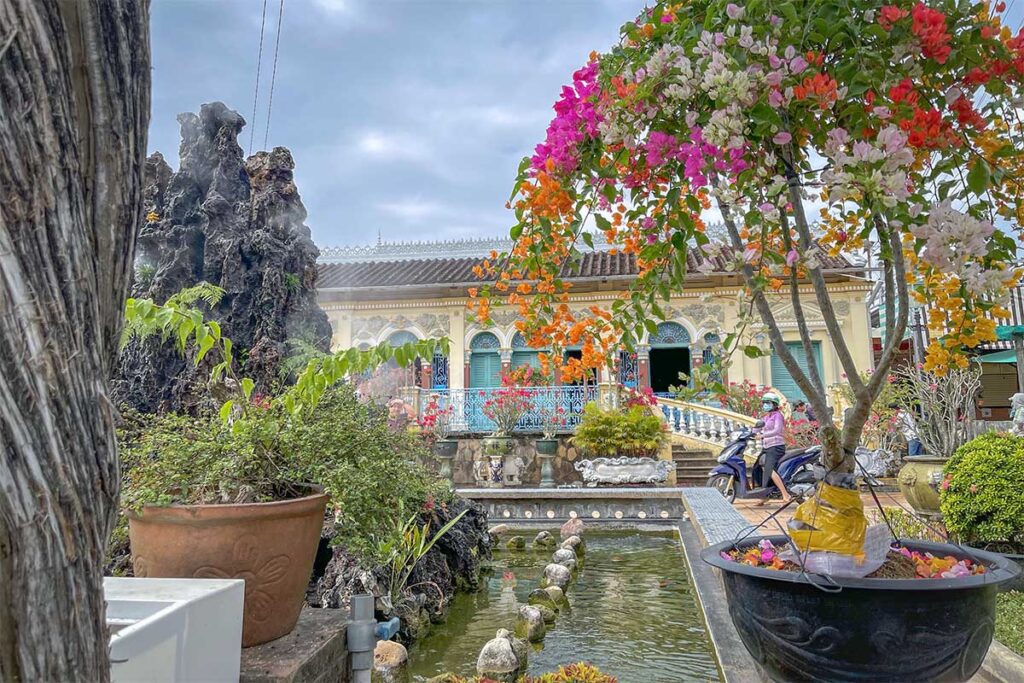
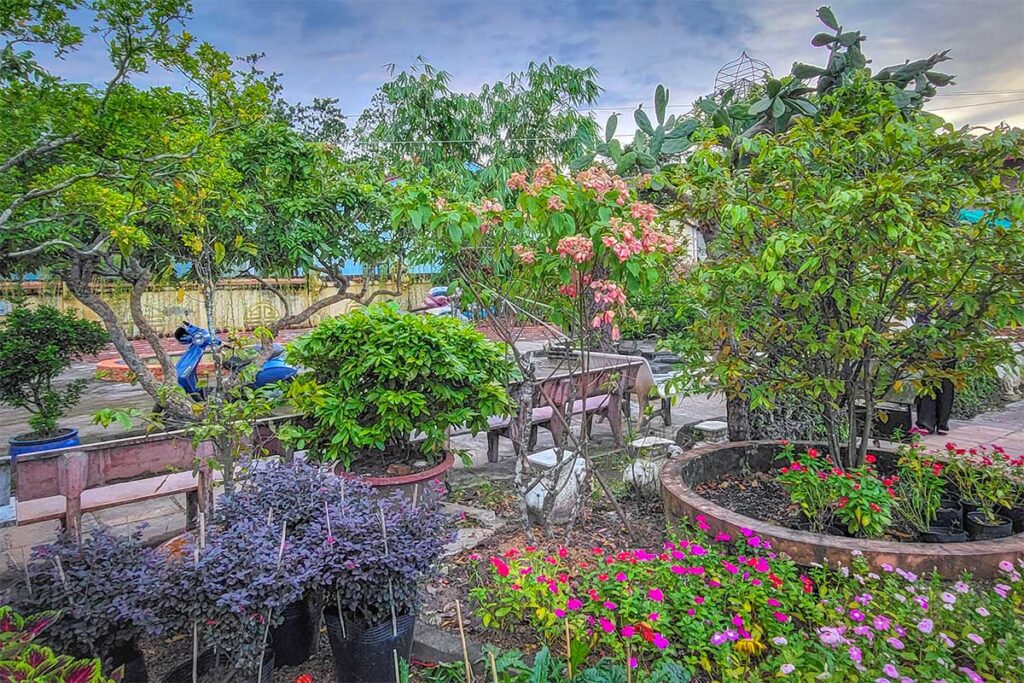
Surrounding the house is a garden that adds to its charm. A Duong family member’s passion for collecting orchids has earned the nickname “Binh Thuy Orchid Garden,” with rare flowers and bonsai trees alongside ornamental plants. The courtyard, paved with Chinese red tiles and dotted with cactus and rock displays, makes the grounds pleasant to wander even if the house visit itself is short.
4. Atmosphere & Experience
What stands out for many visitors is the atmosphere: shaded verandas, airy rooms, and thoughtful design keep the house naturally cool, even without fans or air conditioning. It’s an easy place to pause for a juice at the small café or browse the paintings sold by a resident artist.
You’ll often see couples posing for wedding photos here, drawn by the romantic staircases and balconies that also featured in films such as The Lover. While these connections don’t add much beyond a backdrop, they do underline why the house continues to attract photographers and filmmakers.
How to get there
Binh Thuy Ancient House is located about 6–8 km from central Can Tho, so getting there is fairly straightforward.
- Taxi or ride-hailing apps – The quickest and most convenient option, especially if you’re staying near Ninh Kieu Wharf. A ride takes around 15 minutes depending on traffic.
- Motorbike rental – A popular choice for budget travelers who want flexibility. It’s about a 20–25 minute ride, but the route runs mostly along busy city roads rather than scenic countryside.
- Car with driver or tour – Some visitors include Binh Thuy in a broader itinerary, such as combining it with Con Son Islet or Bang Lang Stork Garden. This is practical if you prefer not to navigate Can Tho’s traffic yourself.
- Cycling – Technically possible, as it’s only around 8 km, but the direct roads are urban and not very pleasant for biking. It’s best suited if you already have a bicycle and don’t mind dealing with traffic.
- Boat – A less common but atmospheric option. From Ninh Kieu Wharf, it takes roughly 45 minutes by boat along the river to reach the house’s riverside, though you’ll need to arrange this in advance with a boat operator.
Practical visiting information & Tips
Opening Hours
The house is generally open daily from 7:00–12:00 and 14:00–18:00. Like many family-run heritage homes, hours can be a little flexible, so it’s best not to arrive right at opening or closing time.
Entrance Fee
Expect to pay 30,000 VND per person. Payment is in cash only, usually collected directly by a family member or staff. Don’t be surprised if there’s no physical ticket issued.
Facilities
On site you’ll find a small café serving drinks, an art shop where a local painter sells his work, basic toilets, and parking space for both cars and motorbikes. Facilities are simple but enough for a short stop.
Photography rules
Photography is generally fine, but avoid taking pictures of the ancestor altar inside the house. As with temples and pagodas, a respectful approach is appreciated.
On-site experience
A family member is sometimes around to welcome visitors, though English explanations are very limited. If you want to understand the history in more depth, it helps to do some reading beforehand or visit with a guide.
Visiting time
Most travelers spend 20–45 minutes here, enough to walk through the house, glance at the antiques, and take a look at the garden. It’s rarely a place where you’ll linger for hours.
Tips
Bring mosquito repellent if you plan to sit outside, and avoid visiting in the midday heat when the garden is less comfortable. A polite, patient approach goes a long way if staff seem abrupt when collecting entrance fees.
Is Binh Thuy Ancient House worth visiting?
Binh Thuy Ancient House is not one of Can Tho’s headline attractions, especially when compared to the floating markets or rural orchards that define the Mekong Delta. Still, it can be rewarding if you enjoy architecture, historic homes, or have a curiosity about places linked to The Lover film.
The visit is short and pleasant, and it makes the most sense when combined with nearby stops like Con Son Islet, Binh Thuy Temple or on your way to Bang Lang Stork Garden. If you’re expecting a grand mansion or perfectly maintained grounds, you may leave underwhelmed — but as a cultural insight into a wealthy Mekong family’s past, it offers a worthwhile glimpse.
